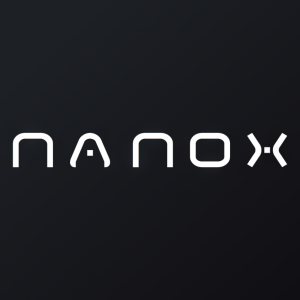Innovative Data Featuring Nanox AI Cardiac Solution Showcased at SCCT 2024
Rhea-AI Summary
Nanox.AI's Cardiac Solution (HealthCCSng) was featured in multiple scientific presentations at the 2024 SCCT Annual Meeting, showcasing its potential in early detection and preventive care of cardiovascular disease. Key findings include:
1. Brigham & Women's Hospital study: HealthCCSng detected Coronary Artery Calcification (CAC) in over 50% of immune-mediated inflammatory disease patients, associated with increased mortality and cardiovascular risks.
2. Corewell Health implementation: HealthCCSng analyzed 32,650 chest CT scans, identifying 3,721 new patients with medium/high CAC, a 13-fold increase from previous years.
3. Jefferson Einstein Hospital study: HealthCCSng identified 757 patients with high CAC levels, leading to 308 follow-up visits and generating up to $130,000 in revenue.
These studies demonstrate HealthCCSng's clinical and economic benefits in improving cardiovascular risk assessment and patient care.
Positive
- Nanox.AI's Cardiac Solution was featured in multiple scientific presentations at SCCT 2024, validating its effectiveness
- HealthCCSng detected CAC in over 50% of IMID patients, associated with increased mortality and cardiovascular risks
- Corewell Health implementation led to a 13-fold increase in identifying patients with medium/high CAC
- Jefferson Einstein Hospital study showed HealthCCSng generated up to $130,000 in revenue from follow-up visits
- Multiple studies demonstrated HealthCCSng's potential to improve early detection and preventive care of cardiovascular disease
Negative
- None.
News Market Reaction
On the day this news was published, NNOX declined 1.75%, reflecting a mild negative market reaction.
Data tracked by StockTitan Argus on the day of publication.
In a study conducted by Brigham & Women’s Hospital, Nanox.AI-Based Analysis helps Reveal Coronary Artery Calcium in over
In a study conducted by Jefferson Einstein Hospital, Nanox.AI Cardiac Solution Flags CAD High-Risk Patients, Drives Significant Revenue
Additional data presented by Corewell Health, Massachusetts General Hospital and Rabin Medical Center
PETACH TIKVA, Israel, July 25, 2024 (GLOBE NEWSWIRE) -- NANO-X IMAGING LTD (“Nanox” or the “Company,” Nasdaq: NNOX), an innovative medical imaging technology company, today announced that the AI Cardiac Solution (HealthCCSng) of its subsidiary, Nanox.AI Ltd., was highlighted in multiple scientific presentations at the 2024 Society of Cardiovascular Computed Tomography (SCCT) Annual Meeting.
“We are encouraged by the implementation of our AI cardiac solution at esteemed healthcare systems, along with the continued validation through real-world studies of its potential to promote early detection and preventive care of cardiovascular disease,” said Erez Meltzer, Nanox Chief Executive Officer and Acting Chairman. “We would also like to thank SCCT for the opportunity to showcase the outstanding clinical results of our AI cardiac solution.”
Findings presented at SCCT 2024 include:
Prevalence and Prognostic Implications of Incidentally Detected Coronary Artery Calcium Using Artificial Intelligence Analysis Among Individuals with Immune Mediated inflammatory Diseases
- Abstract Link (2024-A-817-SCCT)
- Lead author Brittany Weber, MD, PhD, declared as ‘Young Investigator Awards Winner’ at conference
- In a study conducted by Brigham & Women’s Hospital, HealthCCSng was used to analyze non-cardiac, non-gated chest CT scans of patients with different types of immune mediated inflammatory disease (IMID) – systemic lupus erythematosus, psoriasis, and rheumatoid arthritis – which are associated with increased risk of cardiovascular disease.
- The study demonstrates that Incidental Coronary Artery Calcification (CAC) on the CT scans of the IMID patients (identified and quantified by HealthCCSng), was found in over
50% of scanned patients and associated with all-cause mortality and adverse cardiovascular outcomes. - According to the study, Given the limitations of traditional cardiovascular risk calculators among IMID patients, this data demonstrates the potential of AI-based CAC scoring to offer better guidance for preventative therapies for that patient population.
Optimizing Preventive Cardiology: Harnessing AI for Early Detection of Coronary Artery Disease
- Abstract Link (2024-A-573-SCCT)
- Corewell Health reported that in the first full year of implementing HealthCCSng in its electronic medical records (EMR) system, HealthCCSng analyzed 32,650 chest CT scans and helped identify 3,721 new patients with medium or high CAC – a thirteen-fold increase over the 268 patients reported in the previous two years.
- Corewell also reported decreased time to treatment, increased statin prescription rate, increased patient satisfaction with the actionable data concerning their cardiac risk, and improved patient compliance in treatment.
- This observational study demonstrated that the Nanox.AI algorithm is useful in the process of identifying patients with undiagnosed Coronary Artery Disease (CAD) and that AI integrated into the EMR can positively impact population health goals.
AI Empowering Early Detection of CAD Patients for Improved Cardiac Care
- Abstract Link (2024-A-641-SCCT)
- After being installed and implemented at Jefferson Einstein Hospital, HealthCCSng helped identify 757 patients aged 30 or above with CAC levels higher than 100 Agatston units.
- Of these 757 identified patients, 179 met eligibility criteria to be automatically flagged for follow-up consultation and treatment.
- Of these 179 eligible patients, 97 returned to Jefferson Einstein for visits totaling 308 total touchpoints.
- The above-mentioned touchpoints generated up to
$130,000 in revenue for the hospital. - This analysis shows both the clinical and economic effects of implementing an AI solution (HealthCCSng, Nanox.AI) to opportunistically screen large populations.
Artificial–Intelligence-based Detection of Coronary Artery Calcium on Chest CT to Enhance Cardiovascular Risk Assessment of Individuals with Elevated Lipoprotein (a)
- Abstract Link (2024-A-820-SCCT)
- In a study conducted by Massachusetts General Hospital and Brigham & Women’s Hospital, HealthCCSng was used to analyze non-contrast chest CT scans of 260 patients who had measurements of lipoprotein a (Lp(a)), as part of clinical care.
- A statistically significant correlation was found between levels of CAC and Lp(a) – a risk factor for coronary atherosclerosis – suggesting that this approach may be used to identify at-risk patients.
- Such an approach may be used to identify higher risk individuals and screen patients for future clinical trials.
Opportunistic Screening of Coronary Artery Calcification on Non-gated Conventional CT scans Using Artificial Intelligence
- Abstract Link (2024-A-532-SCCT)
- In a study conducted by Rabin Medical Center, HealthCCSng was used to analyze non-gated, non-contrast chest CT scans of 631 patients.
- 84 clinically relevant patients were classified as having high CAC levels and invited to a dedicated outpatient preventive cardiology clinic.
- 20 patients were referred to myocardial perfusion imaging and 2 were referred for invasive coronary angiography.
- This data suggests that AI-based CAC evaluation can help identify patients who may benefit from preventive cardiology services.
- Using HealthCCSng, Rabin Medical Center was able to identify new patients with severe CAC who were previously unknown to the health system and as a result, these patients were scheduled to visit the preventive cardiology clinic.
About Nanox.AI
Nanox.AI is the deep-learning medical imaging analytics subsidiary of Nanox. Nanox.AI’s solutions are developed to target highly prevalent chronic and acute diseases affecting large populations around the world. Leveraging AI technology, Nanox.AI helps clinicians extract valuable and actionable clinical insights from routine medical imaging that otherwise may go unnoticed, potentially initiating further medical assessment to establish individual preventative care pathways for patients. For more information, please visit https://www.nanox.vision/ai.
About Nanox
Nanox (NASDAQ: NNOX) is focused on applying its proprietary medical imaging technology and solutions to make diagnostic medicine more accessible and affordable across the globe. Nanox’s vision is to increase access, reduce costs and enhance the efficiency of routine medical imaging technology and processes, to improve early detection and treatment, which Nanox believes is key to helping people achieve better health outcomes, and, ultimately, to save lives. The Nanox ecosystem includes Nanox.ARC— a multi-source Digital Tomosynthesis system that is cost-effective and user-friendly; an AI-based suite of algorithms that augment the readings of routine CT imaging to highlight early signs often related to chronic disease (Nanox.AI); a cloud-based infrastructure (Nanox.CLOUD); and a proprietary decentralized marketplace, through Nanox’s subsidiary, USARAD Holdings Inc., that provides remote access to radiology and cardiology experts; and a comprehensive teleradiology services platform (Nanox.MARKETPLACE). Together, Nanox’s products and services create a worldwide, innovative, and comprehensive solution that connects medical imaging solutions, from scan to diagnosis. For more information, please visit www.nanox.vision.
Contacts
Media Contact:
Ben Shannon
ICR Westwicke
NanoxPR@icrinc.com
Investor Contact:
Mike Cavanaugh
ICR Westwicke
mike.cavanaugh@westwicke.com








